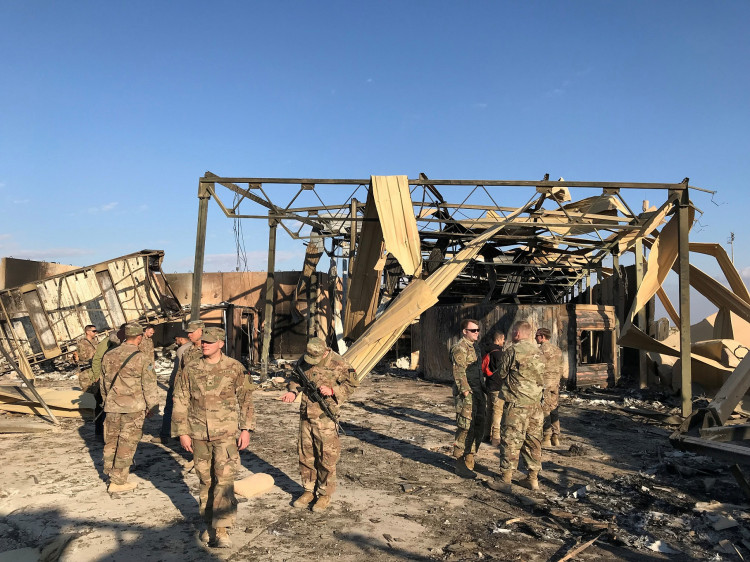On Thursday, U.S. and international forces stationed at the Ain al-Asad air base in western Iraq faced an alarming escalation as drones and rockets rained down on their location. The sound of "multiple blasts" echoed within the confines of the facility, as conveyed by two security officials privy to the matter. The aftermath of the attack in terms of casualties or damage remains uncertain.
In a synchronized offensive, a military base near Baghdad's international airport, which also shelters U.S. forces, was subjected to rocket fire. A high-ranking U.S. defense authority, opting for anonymity, detailed the incident: "Two rockets were launched at the U.S. and Coalition forces at the Baghdad Diplomatic Support Center, adjacent to the Baghdad International Airport, precisely at 2:50 am local time. Our counter-rocket systems successfully intercepted one, while the other struck an uninhabited storage area. Fortunately, we've received no reports of casualties. Further updates will be communicated in due time."
The timing of the assault, coinciding nearly 10 minutes prior to President Biden's pivotal address from the Oval Office, casts an intensified spotlight on the incident.
This string of events culminates in a total of four strikes targeting Iraqi military installations housing U.S. personnel within a 24-hour window. Earlier on Wednesday, drones orchestrated two distinct assaults, with one leading to minor injuries among a handful of U.S. servicemen. Notably, U.S. defenses were successful in neutralizing the armed drone.
Amid these unsettling developments, local sources alluded to earlier threats from Iraqi factions linked to Iran. These groups cautioned the U.S. against backing Israel in its conflict with Hamas in Gaza. This came after the aggressive intrusions by Hamas militants that resulted in the tragic death of 1,400 individuals.
However, the persistent challenge posed by these attacks underscores the broader geopolitical scenario. The United States maintains a strong military presence in the region, deploying 2,500 troops in Iraq and an additional 900 in Syria, its neighboring state. The primary mission of these forces revolves around advising and bolstering local units in their battle against the Islamic State. This extremist group, back in 2014, managed to annex vast stretches of land across both nations.
Ain al-Asad, the air base that found itself at the heart of Thursday's assault, is strategically situated in Iraq's western Anbar province.
As the situation unfolds, the international community waits with bated breath. The recent surge in assaults not only threatens the delicate equilibrium in Iraq but also has far-reaching implications for the stability of the Middle East.





